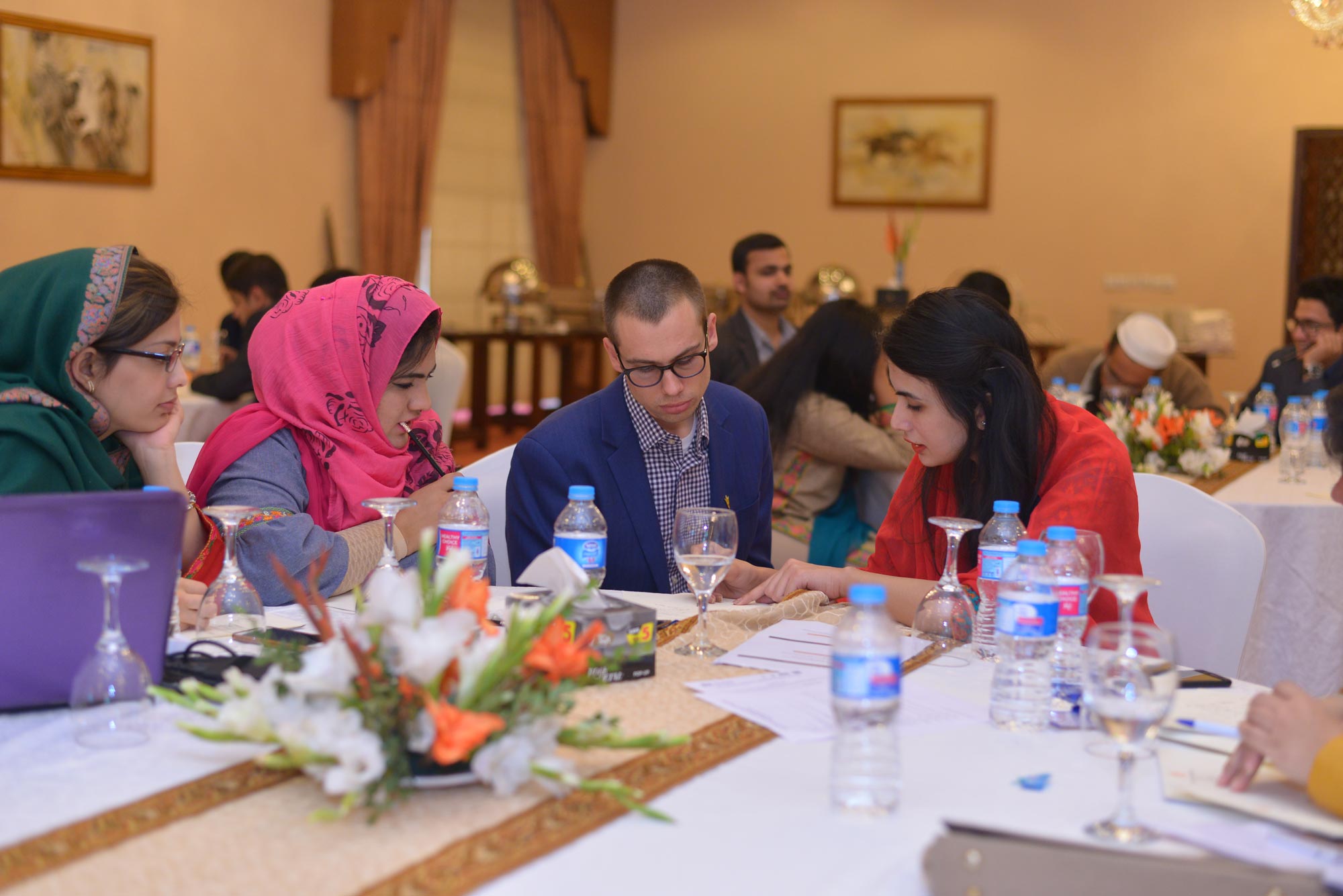Workshop – Energy Materials: Research Opportunities in Photovoltaics, Feb. 7-9

Zachary Holman will host a workshop on Energy Materials: Research Opportunities in Photovoltaics, Feb. 7-9 in Islamabad, Pakistan.
February 7-9, 2018
Serena Hotel, Islamabad
This three-day workshop led by Prof. Zachary Holman of Arizona State University (ASU) will present with the state-of-the-art in materials used in photovoltaic modules, including absorbers such as silicon, perovskites, CdTe, and III-V materials; contacts such as high- and low-work-function metal oxides and transparent conductive oxides; and metallization and module packaging materials.
Photovoltaics (PV), long a minor contributor to the global energy mix, has arrived at a market inflection point: In 2016, PV was the dominant source of new electricity generation capacity in the U.S.—beating out gas and coal—and similar crossovers are occurring around the world. Despite this market growth, commercial PV modules still convert only 20% of the incident solar power into electricity, and their depreciated lifetime is warrantied for only 30 years.
The workshop will first familiarize participants with the state of the art in the materials used in photovoltaic modules, including absorbers such as silicon, perovskites, CdTe, and III-V materials; contacts such as high- and low-work-function metal oxides and transparent conductive oxides; and metallization and module packaging materials. The final day of the workshop will be dedicated to a different, though complementary topic: preparing publication-quality research manuscripts. Students will practice generating a storyboard, or graphical outline, of a proposed research problem and its hypothesized solution before going into the lab to complete the associated experiments.
Guest lecturers will discuss the present state of the PV market globally and in Pakistan, and the Pakistani industry’s role in these markets. There will also be tours of the Pakistan Council of Renewable Energy Technologies (PCRET) photovoltaics laboratory and NUST characterization facilities, as well as presentations from Asma Shamim and Asad Ali, graduates of previous USPCAS-E exchange scholar cohorts.
Workshop Agenda
Day 1: February 7
Role of materials in electrical energy
- Classes of materials used in electricity generation and storage
- Semiconductor materials and devices
- Desired materials properties
State-of-the-art in photovoltaics
- Photovoltaics technology status
- Photovoltaics global market status
Opportunities in photovoltaics research
Guest lectures:
- Photovoltaics market and manufacturing status in Pakistan, Faiz Muhammad Bhutta, Solar Consultant and Ex-Chairman of Pakistan Solar Association
- Field studies from Pakistan’s photovoltaic modules: Materials failures, Michael Wang, CEO of Hisel Power
Day 2: February 8
Photovoltaic materials fabrication techniques
- Vacuum-based deposition techniques
- Solution-based deposition techniques
Facility Tours:
- Scanning electron microscopy and X-ray diffraction facilities tour and demonstration with NUST campus and NUST staff.
- Pakistan Council of Renewable Energy Technologies (PCRET) photovoltaics laboratory tour with PCRET staff.
Day 3: February 9
Manuscript Writing I
- Identifying your audience
- The writing process: Using storyboards as evolving hypotheses
- Crafting an introduction that sets the stage for your work
Manuscript Writing II
- Practice creating storyboards
- Designing effective figures
- Q&A
 Zachary Holman
Zachary Holman
Zachary Holman is an assistant professor in the School of Electrical, Computer and Energy Engineering, one of ASU’s Ira A. Fulton Schools of Engineering. Holman is also part of the NSF-DOE Quantum Energy and Sustainable Solar Technology (QESST) Engineering Research Center, and a Trustees of ASU Professor. He received his Ph.D. in mechanical engineering from the University of Minnesota for his work on plasma-synthesized silicon and germanium nanocrystals, after which he spent two years as a postdoctoral researcher developing high-efficiency silicon solar cells at EPFL in Switzerland. His research group at ASU focuses on new materials and device designs for high-efficiency silicon solar cells and silicon-based tandem solar cells.
About USPCASE
The U.S.-Pakistan Centers for Advanced Studies in Energy (USPCASE) is a five-year program implemented by partners National University of Sciences and Technology (NUST), University of Engineering and Technology (UET) Peshawar and Arizona State University (ASU). The project focuses on applied research relevant to Pakistan’s energy needs. The program has multiple goals including curriculum development, applied research, the establishment of new laboratories, and international visitor programs.